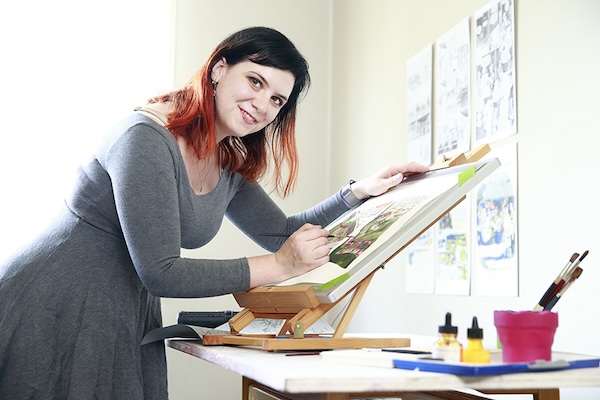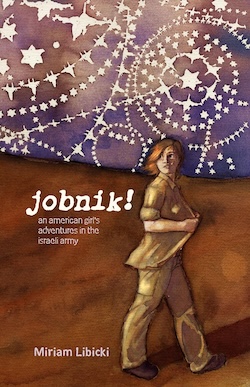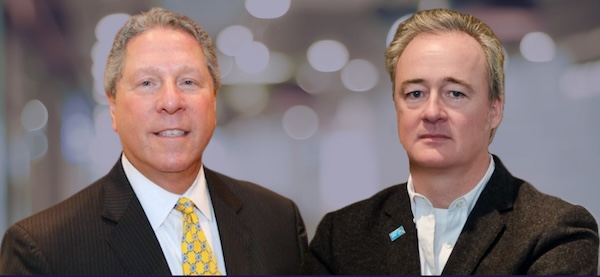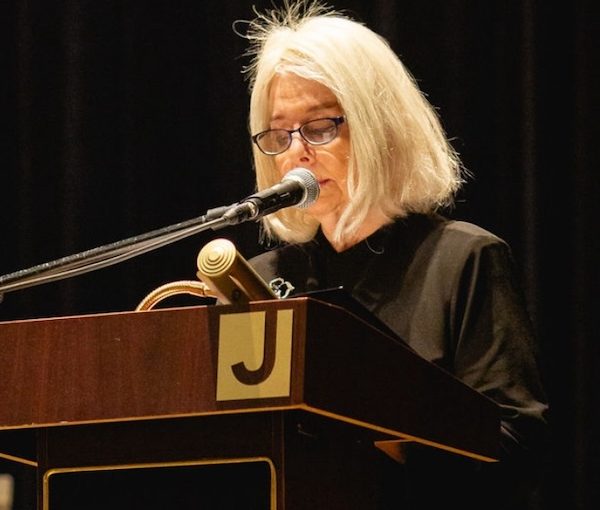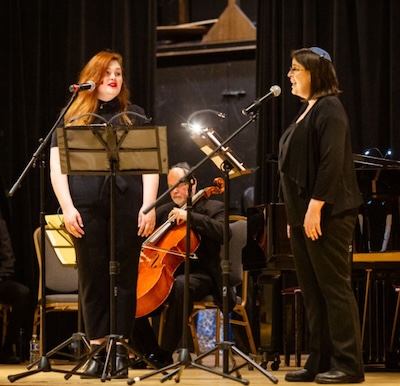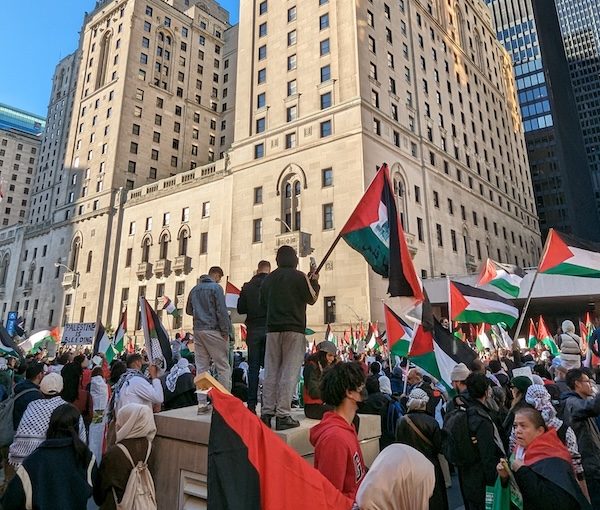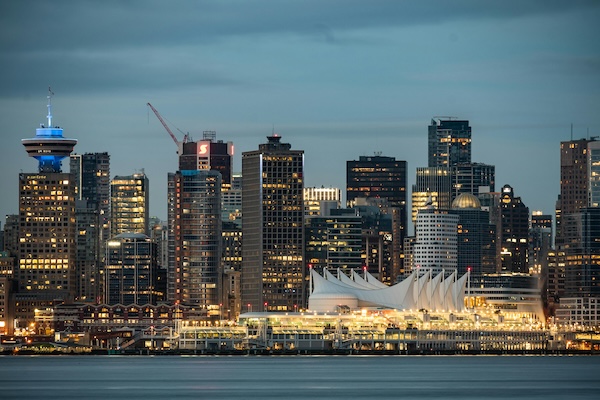“An important part of our work as teachers is to create safety for our students within our classrooms and schools. Globally and locally, we are hearing how increasing rhetoric and hate speech in communities are threatening safety and belonging. With this in mind, a motion was brought forward, and passed by delegates at the BCTF annual general meeting in March,” writes BC Teachers’ Federation president Clint Johnston in the May/June 2024 issue of Teacher magazine.
He goes on to share the motion, which was:
“That the Federation:
“1. continuously lobby the Ministry of Education and Child Care to include, where applicable, the following as part of the Grades 6-12 Socials and History curricula until it gets added to the elaborations:
“a. The Nakba
“b. The 1948 Arab-Israeli War
“c. Military occupation of Gaza and the West Bank.
“2. have the Federation president acknowledge through the next Teacher magazine that these events are essential to understanding the history of Palestine and Israel in the President’s Message.”
In fulfilling his part of the motion, Johnston writes in Teacher about classrooms being “where students develop or question their understandings of world events. Starting these conversations and teaching complicated histories is a difficult task. Teachers need support to approach the historical context of present-day conflicts in their classrooms. It’s important that the Ministry of Education and Child Care, school districts and community partners come together with teachers to create the supports and resources we need to teach challenging world events.”
At press time, none of the President’s Message that deals with the AGM motion could be found on the Teacher website. There, only the first half of the message was posted – in which Johnston talks about the edition’s feature on “societal attitudes toward disability justice and excellence,” and inclusion in schools.
The BCTF did not respond to multiple emails and phone calls from the Jewish Independent for comment on the motion, which was passed at the BCTF’s AGM March 16-19 at the Hyatt Regency Hotel. While the organization’s communications person briefly added the JI to the BCTF’s media list, the paper apparently was removed from that list after inquiring if the receipt of a press release on an unrelated topic meant that answers to the JI’s questions about the AGM would be answered. There was no response, nor has the JI received any further BCTF press releases.
The Jewish Independent found out about the BCTF motion in early April not from the BCTF, but from two other sources: a group called Parents for Palestine, claiming the vote a victory for their own campaign to have the Nakba (Catastrophe) – the term used by many Palestinians and others to describe the creation of the state of Israel and the 1948 war – added to the BC curriculum, and from a Jewish parent, asking people to “Reject political propaganda in schools’ curriculum.”
Parents for Palestine and the groups Teachers 4 Palestine BC, Independent Jewish Voices (Vancouver, Victoria and University of British Columbia), Canada Palestine Association-Vancouver, BDS Vancouver-Coast Salish Territories, Samidoun Palestinian Prisoner Solidarity Network (which in 2021 was designated a terror group by Israel for its ties to the Popular Front for the Liberation of Palestine), Labour for Palestine Vancouver & Victoria, Palestinian Youth Movement Vancouver, and Freedom from War Coalition have started a petition on the Action Network called “Demand That the Nakba Be Added to the BC Curriculum.” Those groups (minus BDS Vancouver-Coast Salish Territories) also have online an open letter to Minister of Education and Child Care Rachna Singh, where organizations and individuals can add their name.
“As a Jewish parent whose grandparents were Holocaust survivors, I believe my children need an education that equips them with the knowledge and tools to build a future where genocide is no longer possible,” says parent Tamara Herman, a member of Independent Jewish Voices, in the Parents for Palestine press release. “Our kids will be confronted with the future impacts of the genocide that Israel is currently committing in Gaza. Receiving a partial history of the creation of Israel that includes the Holocaust but erases the Nakba robs them of the knowledge and tools they need now and in the future.”
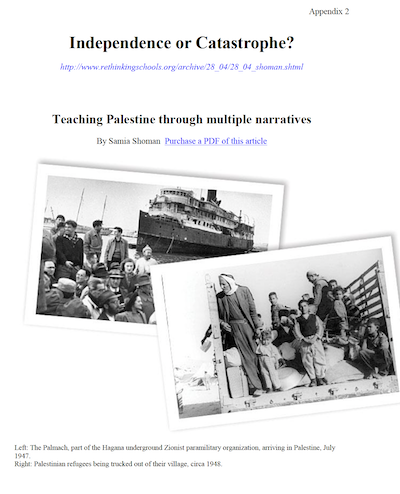
Vancouver parent Masha Kleiner’s petition on change.org reads, in part, “The role of a teacher in a child’s life is paramount and should not be used to advance any political agenda. By introducing such a change to the curriculum, it has the potential to increase targeted hatred of specific children thus creating an unsafe learning environment.”
In the press release she sent to the Independent, Kleiner, who was born in the Soviet Union, writes, “It is not a coincidence that I chose to raise my children in Canada. I wanted my children to grow, internalize and embrace the fundamental Canadian values of safety, diversity, tolerance and freedom. These values are core to Canadian society and they stem from all orders of life, first and foremost, education.
“This is why, as a parent, I couldn’t remain silent when I encountered the motion to add teaching of ‘Nakba and occupation’ to the school curriculum in BC. This motion goes against everything that Canada stands for. This motion is not only harmful on many different levels, but it also exposes dangerous manifestations in the existing curriculum.”
Kleiner is concerned that the BCTF motion and “the polarizing and isolating political agenda it brings into classrooms will create an unsafe and even hostile environment. This motion is not educating students about specific historical events and perspectives; it introduces a one-sided, politically motivated, biased narrative that is being used to target and marginalize particular students or groups.
“The history and the conflict in the Middle East is one of the most complex and multifaceted topics in the history of modern conflicts,” she continues. “Its roots are grounded in millennia of history as well as religious and cultural bedrocks of numerous societies. It is deeply intertwined with recent and modern political and military powers and other conflicts. What’s more, it is a highly sensitive, controversial and even disruptive topic that affects people’s lives all over the world.”
The original motion presented at the BCTF AGM had only two points:
“That the Federation:
“1. acknowledge that the Nakba and the Israel war of independence are significant historical events that are essential to understanding the Israel-Palestine conflict.
“2. make a recommendation to the Ministry of Education and Child Care to include the Nakba and the Israel war of independence as part of the social studies and history curricula.”
The amendments were added on the day of the vote, which took place March 18. A 56-44 majority passed the amended motion, according to a teacher who was at the AGM.
This teacher, who asked to remain anonymous, questioned the value of the motion, noting that teachers could already include the subject in lessons. They said that, while the Nakba could be added to the list of sample topics in the curriculum, that still wouldn’t make the teaching of it mandatory.
 There is a resource available for teachers already, which was developed by the BCTF in 2016. Called The Israel-Palestine Conflict: Searching for a Just Peace, several sections are objectively biased, notably regarding the history of the region. Just two examples: Jews’ right to the land isn’t acknowledged, only that Palestinians lost their homeland; and the fact that hundreds of thousands of Jews were forced to flee Arab countries isn’t mentioned, only that “700,000 Palestinians were driven or fled from their homes and became refugees and many villages were destroyed.”
There is a resource available for teachers already, which was developed by the BCTF in 2016. Called The Israel-Palestine Conflict: Searching for a Just Peace, several sections are objectively biased, notably regarding the history of the region. Just two examples: Jews’ right to the land isn’t acknowledged, only that Palestinians lost their homeland; and the fact that hundreds of thousands of Jews were forced to flee Arab countries isn’t mentioned, only that “700,000 Palestinians were driven or fled from their homes and became refugees and many villages were destroyed.”
The teacher thought that the AGM motion was made, in part, as a reaction to the provincial government having made Holocaust education a mandatory part of the curriculum. At this point, the province has no plans to follow suit with the Nakba.
“I’m leaving it to the teachers,” Singh told CBC in a May 2 interview. “I feel that they are fully equipped and they have the professional judgment on how to assess their student population and how to impart these lessons. This is what my expectation is, that every child is feeling safe in their schools.”

